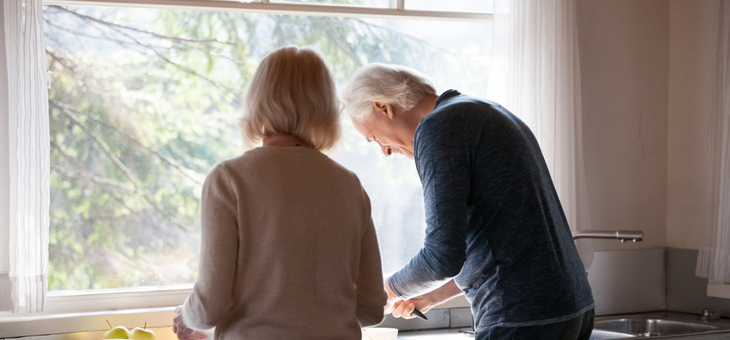Should retirees be forced to use the value of their home to fund their retirement? This is not an easy question to answer but it comes down to whether we think homes are investment goods or a part of the Australian dream.
Prime Minister Robert Menzies (1939-41 and 1949-66) was keen to increase the rate of home ownership in the post World War II era. He was concerned about growing unrest, particularly among young people, and thought that housing was a way of getting people to invest in where they lived. You were less likely to riot in your neighbourhood if you owned a slice of it.
The tactic was successful and ownership rates soared.
Home ownership became part of the Australian dream. Our retirement income system is built on the idea that you own your home. Those who are unfortunate enough not to own their home in retirement are far more likely to be in financial stress and poverty. In this context, it seems ridiculous to include the family home in the Age Pension assets test. After all, it’s an essential part of retirement.
Read more: Carrot not stick approach in family home debate
But home ownership rates are falling. An increasing number of families are finding themselves locked out of owning their home. This has been driven by rapidly increasing house prices as a new source of demand has rushed into the market – investors.
Investors are driving down the rates of home ownership. More people buying investment properties means more people are renting. The only way this could not be the case is if rental properties are left empty because they are unable to find tenants. Many of those who are renting would prefer to be owner-occupiers. Increasingly, more people are feeling left out of the housing market. More rental properties mean more people are unable to live in their own home.
Since the early 2000s, housing has increasingly been seen as an investment good; a vehicle to grow your nest egg; a tool for wealth creation. While the Liberals of the Menzies era wanted us to be homeowners, Liberals today want us to be landlords. In the late 1990s, the Howard government introduced the capital gains tax discount, which made investing in housing more tax effective.
But if houses are now just a way to grow your wealth, why should they be treated any differently to any other asset when it comes to the Age Pension?
Investment properties are treated differently in the Age Pension assets test. Only the family home is exempt.
Read more: Could family home be a victim of stimulus package?
But having set off down the road of seeing housing as an asset that can make money, and away from seeing it as a place to raise a family, it’s not surprising that there are increasing calls to treat it like any other asset.
And if we also accept that a growing section of society is going to be locked out of home ownership, permanently, then are we accepting the likelihood of more poverty in retirement? Or will we need to fundamentally change how the Age Pension is paid to those who rent?
This brings us back to retirees having to ‘eat the house’.
If we are paying more to retirees who rent, the funds will inevitably have to come from somewhere. It could come from a tightening of eligibility for the Age Pension by including the family home in the assets test.
If this all seems odd, it is, probably because we never had a conversation about this change in our attitude to housing. It has crept up on us. Suddenly we are trying to think of housing as both an asset and a part of the Australian dream. This split thinking has led to some very divided opinions.
When the recession first struck in early 2020, there was much talk about house prices falling. At the time, I was struck by the different reactions people had to this. Older people were worried, but I also had many conversations with younger people who were trying to get into the housing market and were genuinely excited by the idea that house prices might fall enough so they could get into the market.
They were happy to see the whole housing market burn if it gave them a chance to buy a home.
Read more: How to sell land and keep the Age Pension
Housing can be special. It can be considered an essential part of retirement and, therefore, excluded from the pension assets test. But not if we want to hand out big tax advantages to investors. Not if we want to see house prices continue to rise much faster than wages.
Rein in tax concessions and slow house price increases or make pensioners eat the house. The choice is up to us.
Are you using your home to help fund your retirement? Or do you expect you will need to do that when you retire? Have your say in the comments section below.
If you enjoy our content, don’t keep it to yourself. Share our free eNews with your friends and encourage them to sign up.

